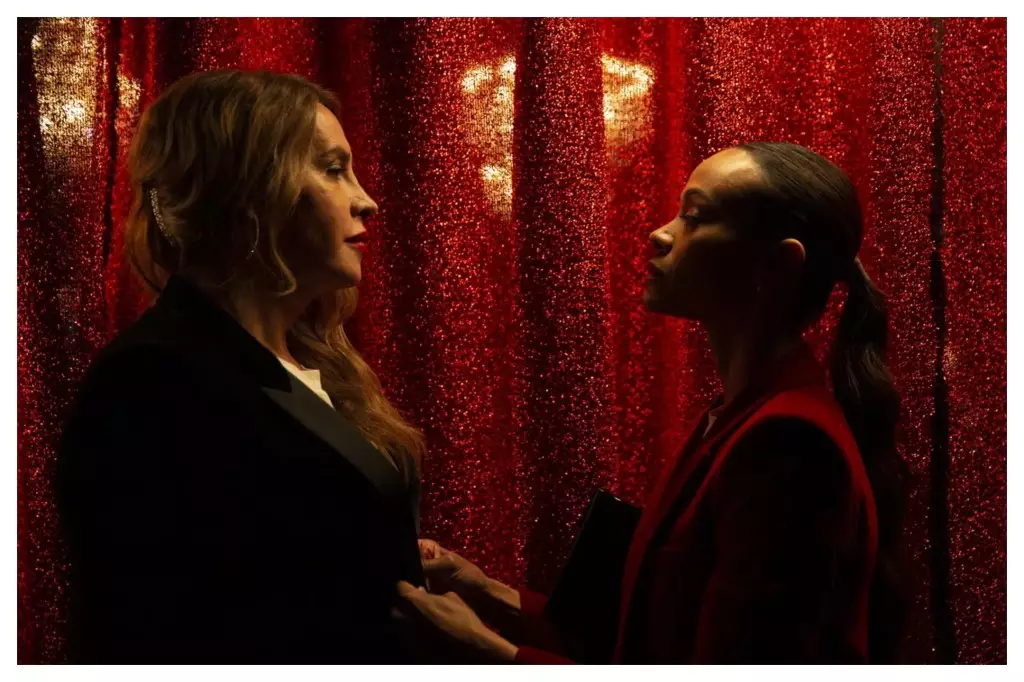In a significant cultural moment, France has chosen Jacques Audiard’s bold Spanish-language musical, *Emilia Pérez*, to represent the nation in the Best International Feature Film category at the prestigious 97th Academy Awards. This decision marks a continued evolution of French cinema, showcasing an expanding appreciation for diverse storytelling and fresh narratives. The film stars Karla Sofía Gascón in a compelling role as a cartel leader who, yearning for authentic expression, collaborates with an underappreciated lawyer, played by Zoe Saldaña, to orchestrate her own death. This plot twist serves as a powerful metaphor for self-discovery and empowerment.
*Emilia Pérez* made its debut at the esteemed Cannes Film Festival, where it captivated audiences and critics alike. Its premiere was not merely a launching pad; it was a striking declaration of intent, as the film secured a collective Best Actress award for its four leading women—Gascón, Saldaña, Selena Gomez, and Adriana Paz. This recognition is a rarity, highlighting a profound shift in how women in cinema are perceived and awarded. In addition to the collective accolade, the film clinched the jury prize, affirming its artistic merit and emotional depth.
The choice of *Emilia Pérez* as France’s Oscar contender did not occur in a vacuum. The selection was made from a competitive shortlist that included other noteworthy titles, such as *The Count of Monte Cristo* and *All We Imagine as Light*. Each film brought its unique flavor to the French cinematic landscape, but the vibrance of Audiard’s project stood out as a beacon of innovation in storytelling.
What makes this year’s selection particularly interesting is the overhaul of France’s Best International Feature Film entry committee, which has broadened its horizons to include a diverse mix of voices and expertise in the film industry. This revamped committee consists of influential figures—producers, directors, and sales agents—who collectively carry a wealth of experience. Their varied backgrounds allow for a more holistic selection process aimed at breaking a 30-year Oscar dry spell for French cinema in this category. It is a testament to the country’s intention to reclaim its artistic prestige on the international stage.
Last year’s selection debacle, where *The Taste of Things* was chosen over the critically lauded *Anatomy of a Fall*, sent ripples through the industry. It highlighted the urgency for a fresh and dynamic selection committee that could better reflect current cinematic trends and audience expectations.
Netflix’s involvement with *Emilia Pérez* is a pivotal element of its awards campaign. Following the film’s successful premiere, Netflix secured U.S. distribution rights and has committed to supporting the film’s promotional endeavors. This partnership speaks volumes about the growing prominence of streaming platforms in shaping the future of cinema. Traditional theatrical release strategies are evolving, and films like *Emilia Pérez* will have the backing needed to reach large audiences, thereby enhancing their visibility during awards season.
The film already showcased financial success after its theatrical release in France, drawing an impressive 735,000 viewers and grossing approximately $5.9 million. With a limited U.S. release scheduled prior to its larger launch on Netflix, industry watchers are keen to see how its reception translates internationally.
As France aims to revive its glory in the Best International Feature Film category, the decision to champion *Emilia Pérez* feels especially significant. Alongside the strategic adjustments made in the selection process, it signals a more inclusive and progressive future for French cinema. Following in the footsteps of past victories, such as *Indochine*, France has the potential to once again make its mark at the Oscars.
Ultimately, *Emilia Pérez* stands not only as a significant cultural artifact but also as a statement of intent by France to embrace new narratives and champion diverse voices. With its powerful story, strong performances, and a revitalized approach to selections, it could resonate well on the world stage, capturing the hearts and minds of audiences and Academy members alike. The film’s journey may well remind the cinema world that boldness in storytelling is not only commendable but essential in today’s globalized narrative landscape.

